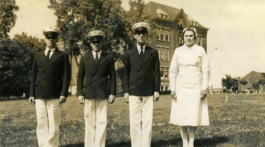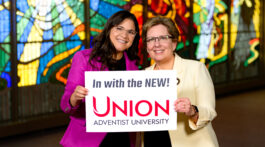The sound of dinging woke me up as I rolled over to shut off my alarm. I sighed as I received a text message from my friend, telling me to meet her for breakfast in 10 minutes. This had become a rigorous routine that I dreaded. In my heart I knew this relationship was no longer adding value to my life, but I am not the type of person to give up on challenging situations.
For months I allowed myself to continually sacrifice my well-being for my friend. I sat through countless hours listening to her gripe about her terrible day. Watching as she smiled to a person passing by, then whisper into my ear, “I hate her.” Listening as she sent harmful comments my way, such as “Your hair doesn’t look good like that” or “Those jeans don’t really flatter your body type.” Constantly having to deal with my friend using mistakes I made in the past against me.
I put up with all of it, hoping if I ignored her negativity and focused on the happy moments we spent together everything would be just fine. Unfortunately, things continued to get worse. I started to fall into a mild depression. This friendship was starting to affect my mental health; it was then I realized something had to change. After several thoughtful conversations with God, I decided the best thing was to let the friendship go.
Overcoming conflicts in friendships is something we all deal with in our lifetime. Some issues can be easily resolved, but others stick around and start to take a negative toll on us spiritually, mentally and physically. It can be hard to notice the red flags in a relationship that we are invested in. Here are four warning signs that helped me recognize when it was time to pray and let go.
They say one thing, but do the other.
“An enemy dissembles in speaking while harboring deceit within; when an enemy speaks graciously, do not believe it, for there are seven abominations concealed within” (Prov. 26:24, 25).* If you notice that your friend is talking about other people behind their back but puts up a façade when that person is present, this may mean you cannot trust them with your personal issues.
They frequently put you down.
“Why do you see the speck in your neighbor’s eye, but do not notice the log in your own eye?” (Matt. 7:3). Our friends are often people we come to for support, so it can be difficult if your friend is consistently judgmental. Florence Issacs, author of Toxic Friends, True Friends, writes, “A friendship is toxic if it’s regularly unsupportive, unrewarding, unsatisfying, draining, stifling and/or unequal.”
They bring up matters of your past.
“One who forgives an affront fosters friendship, but one who dwells on disputes will alienate a friend” (Prov. 17:9). Nobody likes to be reminded of their mistakes. Harmful people use your mistakes as weapons against you.
They constantly complain or are always negative.
“Make no friends with those given to anger, and do not associate with hotheads, or you may learn their ways and entangle yourself in a snare” (Prov. 22: 24, 25). Being around someone who has a negative outlook on life can be draining. Cherie Bubach, author of Art and Faith, writes, “Very often the world feels like a negative, hopeless place, which is why having the right friends is so important.” She also states, “Good friends will help you see the possibilities in life.”
While friendships are vital to our human existence, it is important to be aware of relationships that are unhealthy.
Dr. Yager, a sociologist at the University of Connecticut at Stamford, says, “If the friendship has deteriorated to the point where one friend truly dislikes the other one or finds that the friendship is causing undue stress, the healthy response is to pull away.”
This topic can be difficult, because as Christians we convince ourselves that letting go of a friendship is something God doesn’t want us to do, but if we look at Prov. 12:26 this is not the case. The verse says, “One who is righteous is a guide to his neighbor, but the way of the wicked leads them astray.” God reassures us that there is nothing wrong with letting go of toxic friendships.
Alaysha Harris is a senior communication major at Union College.
*All Bible texts are from the New Revised Standard version.










